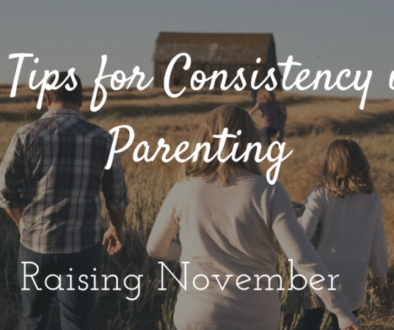The Two Types of ADHD
ADHD is a term that’s thrown around so often these days, and I’ll bet you’ve used it off hand to describe someone you know or even the behavior you’re exhibiting lately. We all assume we know what it means, and it’s used wrongly every day. It’s used to apply to everyone from a kid who misbehaves in school to an adult who has trouble focusing on a single TV or computer screen at a time, But, ADHD is actually a clinical diagnosis. Learning more about what ADHD is and is not can help you determine if you or someone you love warrants further testing.
I found a couple of interesting infographics lately that show there are two or three types of ADHD. I’ll share those with you and we’ll go over what they describe compared to my own experience dealing with it in my own life.
What is ADHD Anyway?
ADHD stands for attention deficit-hyperactivity disorder. That term is often used along side ADD which stands for attention deficit disorder. However, this term refers to cases where there’s attention deficit, but no hyperactivity involved.
From a laypersons point of view, ADHD means the person (often a child) has problems concentrating and paying attention. Of course, that can be applied to almost any child at some point during the day. It can also be used with adults now days when you consider how many things we have to do, and the distractions of social media and the internet.
What sets people with ADHD apart is that the area of the brain responsible for clarity, mental focus and activity is actually wired differently. What that means is that even when you try to settle down, your mind just doesn’t want to comply. You can tell yourself to relax, focus, and pay attention, but you just can’t make your mind and body comply.
Signs and Symptoms of ADHD
There are three main types of symptoms in ADHD: hyperactivity, inattention and impulsivity. Each has similar symptoms but they can be distinguished enough to determine if your child has one, two or all of the components.
Signs of hyperactivity include:
- difficulty sitting still, frequent fidgeting and squirming uncontrollably
- the inability to stay seated, even when they’re instructed to stay still
- inappropriate behavior like climbing or playing at inappropriate times, or on inappropriate objects like chairs or desks
- problems playing quietly when requested
- incessant talking even when instructed to be quiet
Signs of inattention include:
- trouble staying on task for even short periods of time
- lack of attention when you are speaking to them
- issues with staying organized at school, work and home
- forgetfulness regarding assignments, requests, chores, homework, etc.
- easy distractability when performing a task
Signs of impulsivity include:
- difficulty waiting in line
- blurting out of answers in class or in meetings even when not called on
- constant interruption of conversations
Lets take a closer look at those symptoms, shall we? What I saw in my daughter during the 1st – 5th grade was a real lack of ability to concentrate on something for very long. She was easily distracted even when she was really interested. She would often forget to bring homework home, and would beat herself up – literally and figuratively – for forgetting things.
I was, of course, frustrated too. We had suspected that there were issues ang the school did testing, but she never quite met the criteria. In 5th grade, it got really bad. We were both in tears nearly every day over doing homework – or rather, not getting homework done. We finally took her to the doctor and asked for help. He had us fill out a form called the Connors assesment (I think) and the teacher and her dad also filled one out. After we turned it in, the doctor got back to us and said she had the worst case of ADHD he’d seen!
It was actually a relief to hear, but it was just the beginning. Next week, we’ll look more at diagnosing ADHD. September is ADHD/ADD month here at Special Needs Kids Talk Radio. Be sure to enter your email below in order to get these updates right to your email inbox.
If you or your child has exhibited any of these signs, the next step is testing. A professional assessment can give you more insight into the condition, with regards to possible treatment and management.
photo credit: Niklas via photopin cc





Dr. Dawn
06/14/2020 @ 6:08 AM
Thanks! So informative.
Stephanie @ From the Burbs to the Boonies
09/05/2013 @ 4:35 PM
Thank you for posting this awesome informative list. My son has ADHD and I am stunned at the misconceptions people have. There is evidence of a physical basis and I wish people would understand it does not mean a bad child or bad parenting. Getting the word out as you have done is great, thank you.
Stephanie @ From the Burbs to the Boonies recently posted…Frugal tip: watch for super berry sales